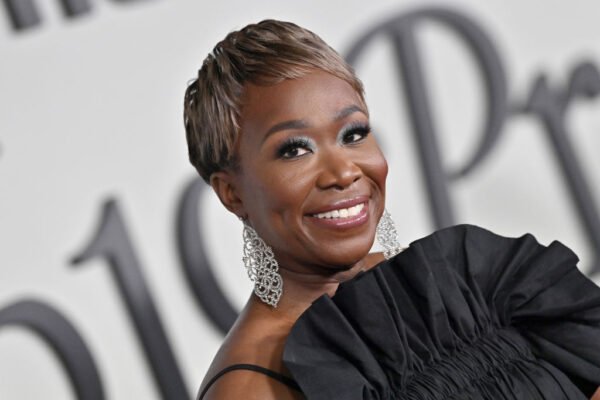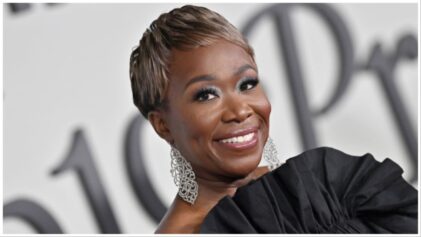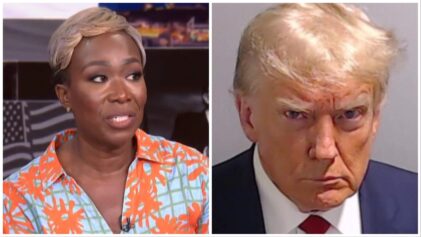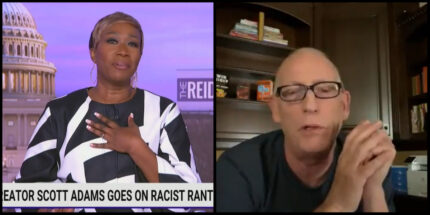NBC correspondent Joy-Ann Reid thoughtfully broke down why the term ‘Black’ is a preferred racial label for African-Americans.
In an appearance on the C-SPAN’s morning in-call program “Washington Journal,” Reid responded to a caller who talked about the different racial labels African-Americans have gone by in American history like “negro” and colored,” but raised a question specifically about the label “Black.”

“Why are we still using the synonym ‘Black?'” the caller asked, adding that the term black in the dictionary means “darkness” and “void.” “There are no Black people. We are not Black people. We are brown,” she said.
Reid said that the racial label “Black” is one that Black Americans has to reclaim from white supremacists and slaveowners who made up the terms “negro” and “white” to distinguish themselves from the Africans they enslaved starting in the 17th century.
“I don’t think people understand that Africa is the most biodiverse continent. There are 2300 separate ethnic groups on the continent of Africa,” Reid explained. “So when Africans were taken in slavery to America, you’re mixing tribes that had no genetic relationship other than all being ‘negro.’ So the idea of whiteness and blackness was invented in America.”
The terms “negro” and “colored” were used heavily up until the mid-20th century when the civil rights movement began to shift the social and political landscape for Black people in America. These labels are now unsuitable and inappropriate to use when referring to Black Americans.
As the Black power movement got underway in the 1960s, many Black activists and leaders advocated for new labels.
In 1966, activist Stokely Carmichael, later known as Kwame Ture, famously introduced the phrase “Black power” at a rally in Mississippi. What followed was a cultural turning point where phrases like “Black is beautiful” and “I’m Black and I’m proud,” began to emerge as powerful and restorative expressions among Black Americans that revitalized identity and well-being.
“When people reclaimed the term ‘Black’ in the 1960s, it was because they had decided to empower themselves. It was a term that felt to them more powerful than simply using the term ‘negro,” Reid continued. “So I don’t see any problem with ‘Black.’ ‘Black’ is a term that can mean power. It can mean beauty. It doesn’t have to mean darkness and horror. In terms of Black culture, it doesn’t mean that.”
The racial label “African-American,” gained popularity in the 1980s after a number of Black leaders like the Rev. Jesse Jackson, supported its use and noted its “cultural integrity.” That term is still commonly used today to refer to Black people.
A 2021 Gallup poll found that Black Americans prefer the use of “Black” (52 percent) over the use of the term “African-American” (44 percent).
New terms like BIPOC and POC, referring to “people of color,” started cropping up over the last decade in the United States as comprehensive labels to refer to anyone who is not white.


